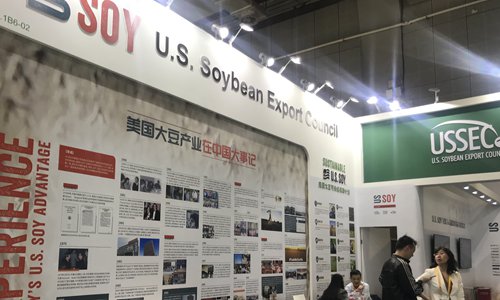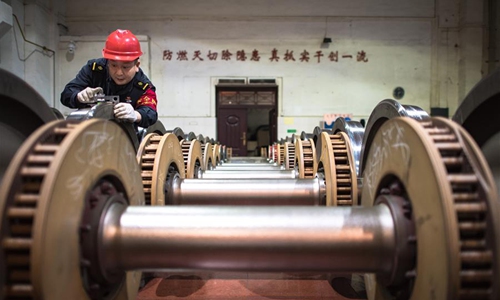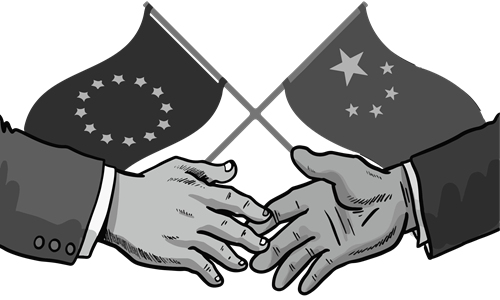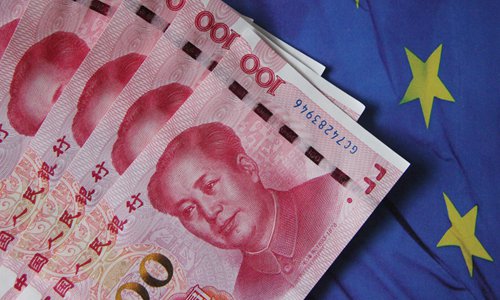China unlikely to delay implementation of phase one trade deal despite virus
China unlikely to delay implementation of phase one trade deal

A view of the US Soybean Export Council exhibition booth on Monday during the second China International Import Expo Photo: Xie Jun/GT
It is highly unlikely that China will ask the US government to delay the implementation of the phase one trade agreement signed in January.
Although the outbreak of the novel coronavirus will postpone China's purchase plan of US goods in the first quarter this year, Chinese companies can scale up purchases during the rest of the year to make up for the void, as the obligation is measured in yearly terms, analysts said.
The comments come after Bloomberg claimed that Chinese officials would plan to request the US government for some flexibility "at some point" on clauses stated in their phase one trade deal due to the onslaught of the deadly virus.
The deal, signed by the China and US governments on January 15, includes a term that states China and the US will consult if "a natural disaster or other unforeseeable event" delays one party from complying with its obligation in a timely manner. The deal is slated to take effect within 30 days from its signature or no later than February 14.
But Chinese analysts, while showing confidence in China's ability to honor its commitment, say the chances of China asking for a delay in implementation are very slim despite apparent disruptions triggered by the virus epidemic.
"As some government departments and companies are yet to decide the date to resume work, Chinese firms' purchases of US goods will inevitably be delayed in the first quarter," Gao Lingyun, an expert at the Chinese Academy of Social Sciences in Beijing, closely associated with the trade talks, told the Global Times on Tuesday.
Gao stressed that the virus will only slow down China's purchase plan rather than cut down purchases from the US market.
"As the virus gradually fades, Chinese firms will be able to reach the [goal set out in the] annual purchase plan by buying more in the second quarter and the second half of the year," he said, noting that some companies are mentally prepared for the current difficulty.
Under the phase one agreement, China has agreed to increase its purchases of US farm, energy, and manufactured goods, as well as services, by at least $200 billion over the next two years, while the US has agreed to reduce tariffs on Chinese goods.
Chinese people have the mindset of "sooner rather than later," which means Chinese companies will look to complete their obligations," Gao added.
The Chinese Ministry of Commerce had not responded to an interview request from the Global Times as of press time.
However, if the Chinese economy falls largely short of expectations in the first two months of the year due to the fallout of the virus, Beijing may take account of the situation, evaluate its impact, and consult with the US accordingly, other observers said.
"China has the right to do so. It is also in line with international law," Gao noted.



